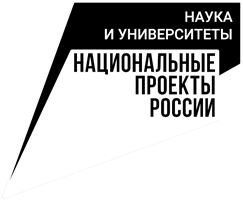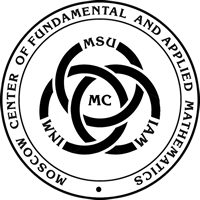164th meeting of the seminar
«Mathematical modeling of geophysical processes: direct and inverse problems»
The seminar is devoted to the consideration of various aspects of mathematical modeling of physical processes in the atmosphere, hydrosphere and active layer of land, associated with solving problems arising in the study of the problems of climate change and the natural environment.
Seminar Organizing Committee
| Leaders: |
Doctor of Physics and Mathematics A.V. Glazunov (Marchuk Institute of Numerical Mathematics of RAS) Doctor of Physics and Mathematics I.A. Repina (A.M. Obukhov Institute of Atmospheric Physics of RA) Doctor of Physics and Mathematics V.M. Stepanenko (RCC MSU, Geographical Faculty of Moscow State University) |
| Secretary: |
A.V. Debolsky (RCC MSU, A.M. Obukhov Institute of Atmospheric Physics of RAS). |
PROGRAM
17:15
| K.V. Lebedev | Shirshov Institute of Oceanology |
Argo model of global ocean research: a synthesis of oceanographic observations, satellite altimetry, and numerical modelings.
The report presents the Argo Model of the Global Ocean Survey (AMIGO) and the results of calculations for modeling the large-scale dynamics of the World Ocean and studying its intra- and inter-annual variability. The model consists of a block of variational interpolation on a regular grid of ARGO drift gauge profiling data and a block of model hydrodynamic adaptation of variationally interpolated fields. The developed technique makes it possible to obtain a complete set of oceanographic characteristics: temperature, salinity, density and current velocity from irregularly located ARGO measurement data. AVISO satellite altimetry data are used in the variation interpolation procedure to control the solution behavior, adjust model parameters and select weight coefficients. The obtained results are controlled by comparing the model level values with the satellite altimetry data averaged over the corresponding period of time. Comparison of AMIGO calculations with similar calculations performed on the basis of the Levitus World Ocean Atlas alternative climate arrays and Scripps Institute of Oceanography arrays, which were also obtained from ARGO data, is conducted. Based on the results obtained, we can conclude that the variational methodology of oceanographic characteristics calculations using ARGO data makes it possible to significantly increase the detail and realism of the obtained fields of temperature, salinity and currents of the World Ocean. Model calculations of oceanographic characteristics using ARGO data make it possible to significantly improve climatic fields of temperature, salinity and currents. The methodology used makes it possible to reconstruct the three-dimensional velocity field both for areas provided with observations and in the coastal region, where Argo data are practically absent. The report will also present the results of work on studying the intra- and interannual variability of some areas of the world ocean based on AMIGO calculations and research on studying and evaluating the contribution of thermohaline and wind factors to the interannual variability of ADC flow based on numerical experiments.
The seminar will be held in the form of a webinar on the Zoom platform.
Topic: семинар "Математическое моделирование геофизических процессов: прямые и обратные задачи".
Time: June 8, 2023 05:15 PM Moscow (GMT+3)
Meeting ID: 816 6676 2233
Passcode: 372159
For communication on all issues related to the work of the seminar, please contact the academic secretary Andrey Vladimirovich Debolsky at and.debol@srcc.msu.ru

